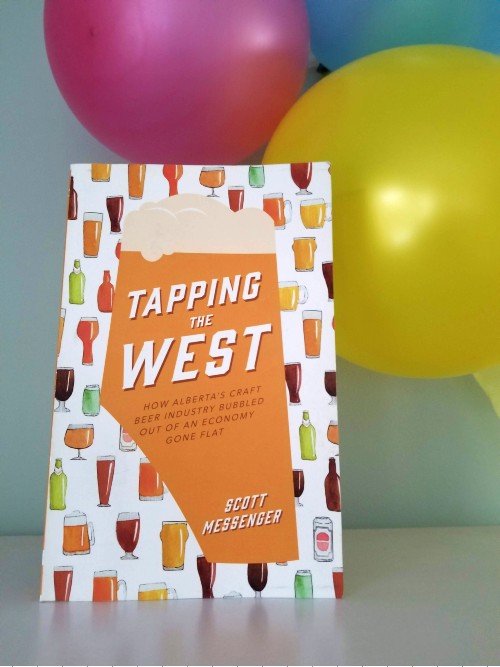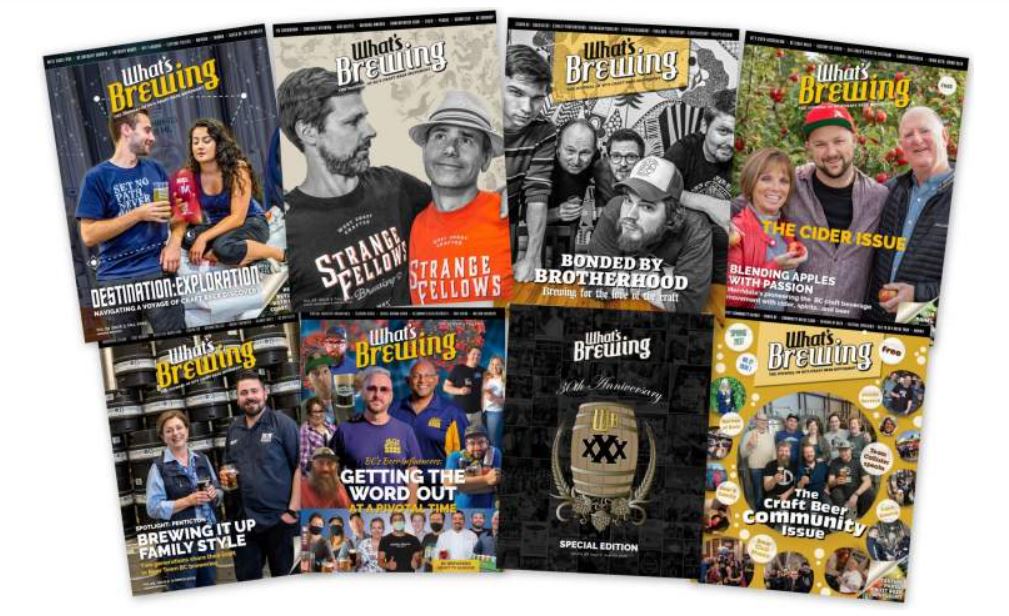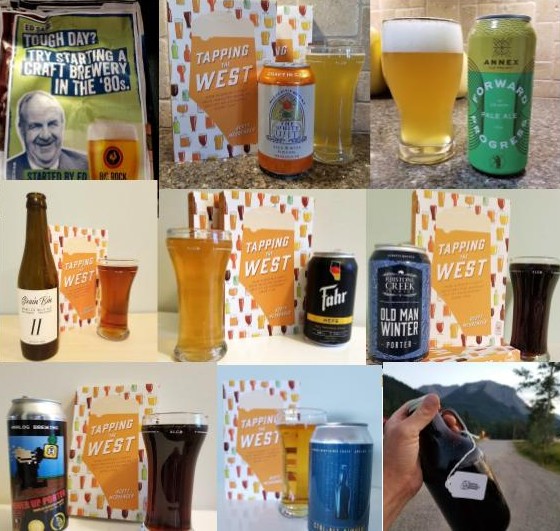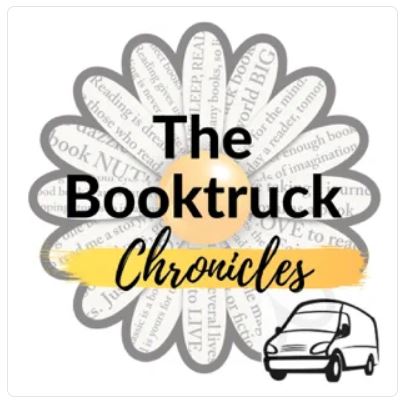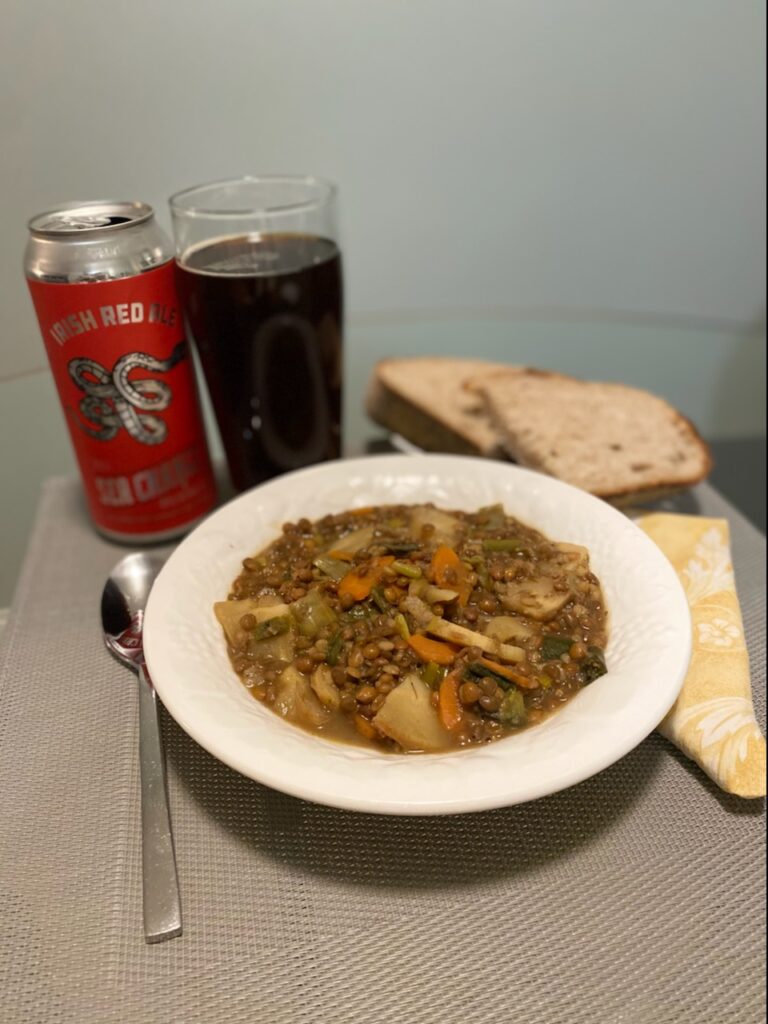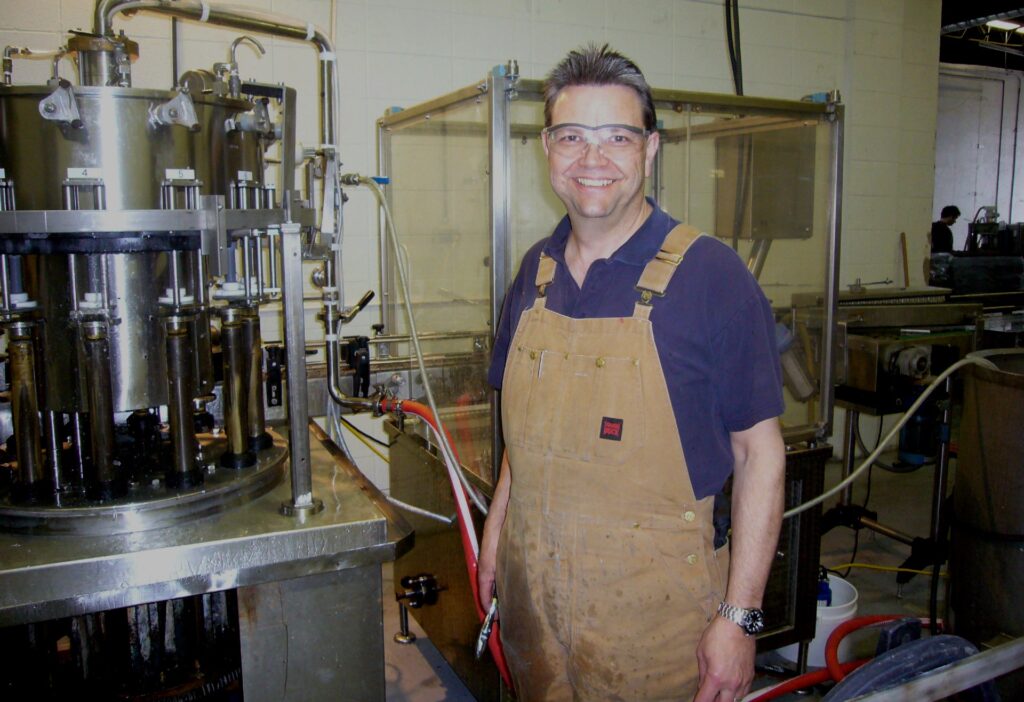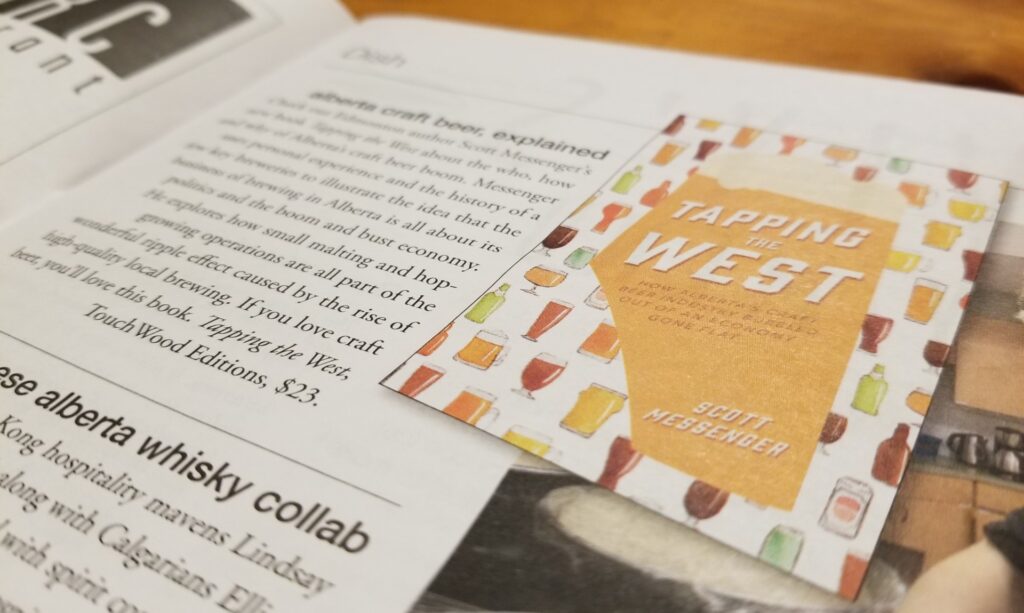May 5, 2021 marks the first anniversary of publication of my book about Alberta craft beer
Wow – time sure flies when you’re waiting out a pandemic, doesn’t it? Oddly, it kind of does. Since the publication of my first book, Tapping the West: How Alberta’s Craft Beer Industry Bubbled Out of an Economy Gone Flat, an entire year has disappeared about as quickly as the head on one of my crummy homebrews.
Here’s a thing people say: “Putting a book out during a pandemic – that must have sucked.” They don’t say it quite like that, but they might as well. Truth is, it hasn’t been nearly as bad as I expected. Some publishing houses held back their spring 2020 books. Mine, Touchwood Editions, didn’t, and I’m grateful. Everything has gone all right, at least from my perspective as a know-nothing first-time author.
I’d like to take a moment to celebrate that, and to look at the unexpected highlights of an absolutely horrible year. Thanks to a lot of great people, some decent stuff came out about the book, or happened because of it. In fact, that list is reassuringly long. I’ll spare you – I’ve made a short version below.
Before we get to that, however, thank you to everyone who put the time, and possibly money, into reading the book. That means a lot to me. One day, hopefully sooner than later, I’ll get the chance to clink frothy mugs of fancy beer with some of you, rather than raising a glass from afar, all by my lonesome. Cheers, just the same.
1. Virtual launch, thanks to Edmonton Public Library
2020 was the year that having beers online became a thing, but who knew I’d get to have one with Ben Rix of Bent Stick, Greg Zeschuk of Blind Enthusiasm and a few dozen friends and strangers? This lovely conversation was facilitated by Katherine Gibson at Edmonton Public Library. And now it’s preserved forever on the YouTube for your enjoyment.
2. Review in What’s Brewing
There were a handful of kind (and constructive) reviews for Tapping the West and I am grateful for them all. One that stands out to me, however, appeared on whatsbrewing.ca, a lauded B.C. beer magazine. That the book, as reviewer Ted Child suggested, had the potential to bring the amazing story of Alberta beer to craft lovers from out of province made me think, “Hey, maybe all those summer Saturdays of locking myself in a study room and tapping away in the local library were worth it after all!”
3. Pairing the book with the beers
My book was never meant to be a guide. Alberta has a guide and needs no other. That said, the book is all about Canada’s best beer, so why not showcase the product a little?
That’s why I created this addendum, matching some of my favourite Alberta beers with the people who make them, page by page. I wouldn’t suggest anyone read my book more than once (it ain’t no work of fine literature, after all), but even I could be tempted to go back to this handy, well, guide.
4. Appearance on the Ryan Jespersen Show
Don’t bother trying to click on that image – Ryan Jespersen has been stricken from every obelisk, it would seem, on the webpages of Corus radio, or more specifically 630 CHED, from which he was fired in September 2020. I did a fair bit of radio for Tapping the West, but my interview with Jespersen stands out for his thoughtful questions and roaring enthusiasm (to be fair, this chat with the funny and genial Russel Bowers of CBC Radio runs a close second).
“It sounded like he was yelling at you!” a friend commented after the Jespersen interview. I like that. We should be shouting from the Rocky mountaintops about Alberta beer, shouldn’t we?
5. Gourmand Award for best beer book in English in Canada
I’ve said many times and will say it again here: writing awards are the outcome of the rolling of the dice. If there’s a cosmic alignment of right product, right time, right judges, you win. Change any one of those and yer out, sucker.
Now that I’ve said that, I have to say thank you. Because writing awards, regardless of how you feel about them, do two important things. One: they can attract media, and that’s helpful for someone trying to sell books. Two: they notify you of your worthy co-nominees, whom you should learn from, which I enjoyed doing in this previous post. So, thanks Gourmand – and thank you, lucky stars!
6. Appearance on the Daisy Chain Book Co. podcast
A few very kind people hosted me on their podcasts to talk about the book and I loved it every time. It’s such a pleasure to be able to have a conversation, as opposed to a five-point conventional media interview, with someone who’s willing to devote the time and energy to this mode of longform storytelling.
My chat with Brandi Morpurgo, owner of Edmonton’s Daisy Chain Book Co., stands out because it veered away from beer every so slightly to talk about writing, which is a thing I love to talk about almost as much as craft beer. It’s worth a listen if only to tap into Morpurgo’s passion for supporting the writing community.
7. Learning to make vegan Irish stew
I am a terrible cook. There. I said it so my lovely wife doesn’t have to. (My kids already do.) So when Karen Anderson of Alberta Food Tours challenged me to make a dish for St. Patrick’s Day using an Alberta beer, I though it was about time I tried to make something someone would like, food or otherwise.
This vegan Irish stew, flavoured with Sea Change Brewing’s Irish red ale, shocked everyone in the house. There may be hope for me, and my family, yet.
8. The Christmas marketing campaign
What do you do when you have no cash for some flashy ads to boost Christmas sales? You make your kid work for their holiday loot with an unpaid acting gig, that’s what! This might seem like an unlikely highlight to include in my list, but this “commercial” makes me laugh every time I watch it.
I think you will too. If you don’t, you’ve got a heart like the Grinch, long before it grew. (That was one take, by the way. I think there’s a future there, don’t you?)
9. Exit interview with Neil Herbst
Here’s a thing that wasn’t in the book. Soon after Tapping the West came out, Neil and Lavonne Herbst closed the deal on Alley Kat, their Edmonton brewery of 25 years, selling to local entrepreneurs Zane Christensen and Cameron French.
As part of a story I have coming out on that sale, I re-interviewed Neil. For me, this closed a key chapter in the history of Alberta craft beer. The interview marked the end of his long goodbye to a life’s work, and perhaps in a way my own goodbye to him. Where’s a beer for me to cry into? Can it be a Full Moon pale ale?
10. Planning for the next round
Ah, who am I kidding? I’m not about to let Neil Herbst off the hook that easy. I’m pretty sure that if COVID doesn’t stop me (because as we all know it’s getting in the way of f-ing everything) there’s another book about beer in me yet, for which I’ll need his help once again. It’s been fun to start planning.
For the past couple of years – including the research and writing of the book and the, well, nothing of note that followed – it has been such a pleasure to immerse myself in the world of local craft beer and get to know the people behind it. Like I said in the book, it’s bigger than beer. At least, I think I said that. Somewhere near the back. It’s probably a quote out of context.
In any case, that world, and the privilege of writing about it, is hard to get enough of. So, yes, please, another round (assuming my publisher doesn’t cut me off and send me home).
Let’s see what else is brewing.
